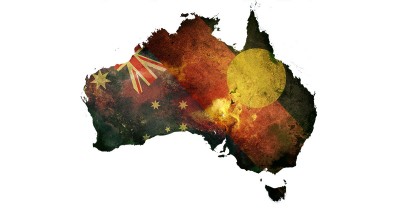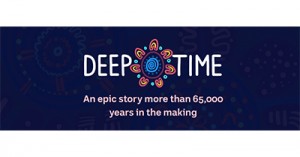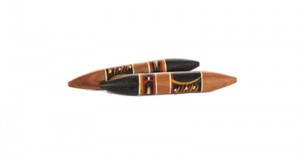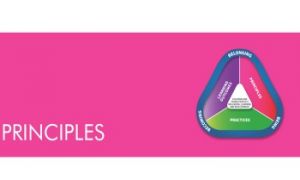Among the key principles of the NQF is the valuing of Australia’s Aboriginal and Torres Strait Islander cultures. Recognising and including Aboriginal and Torres Strait Islander peoples and cultures forms the bedrock of not only reconciliation but of the broader process to foster respect for diversity and cultural competence. Here are some practical steps that educators can take to bring about deeper reconciliation and inclusion in service goals and practices.
- Review current practices and documents. Every approved provider is required to have a services philosophy or a written statement of values and beliefs which guide the operation of the service. Check that your services philosophy, quality improvement plan and other documents have reconciliation as clearly stated goals and evidence of working towards it.
- Use team meetings and reflective sessions to promote awareness of Aboriginal and Torres Strait Islander peoples, cultures, history and contemporary society.
- Involve Aboriginal and Torres Strait Islander representatives when developing or reviewing your services philosophy and other documents that guide the goals and practices of your service.
- Develop respectful, authentic relationships with local Aboriginal and Torres Strait Islander peoples and communities by reaching out to local land councils, community liaison officers, Elders Councils, legal services, health organisations or reconciliation groups.
- Invite Aboriginal and Torres Strait Islander peoples representatives for talks, parent volunteering and other ways of engaging with your service.
- Develop a RAP or Reconciliation Action Plan to set in motion a practical plan of action that recognizes and includes Aboriginal and Torres Strait Islander values and requirements.
- Encourage educators and staff to attend professional courses, workshops and development sessions for a greater appreciation for the importance of connectedness to land and spirituality that lies at the heart of Aboriginal and Torres Strait Islander cultural identity.
- Develop a daily practice of acknowledging and paying respect to the traditional owners and ongoing custodians of the land on which the service is built.
- Invite Aboriginal and Torres Strait Islander community members to open major events at the service with a formal Welcome to Country.
- Find ways to include Aboriginal and Torres Strait Islander narratives in teaching practices like telling Dreaming (Aboriginal) or Tagai (Torres Strait) in storytelling and literacy activities.
- Invite Aboriginal and Torres Strait Islander performers and artists to the service or visit them to help children explore their cultural expressions like music and art.
- For children’s activities, use maps, flags, music, puzzles, books, videos, posters that value Aboriginal and Torres Strait Islander cultures including messages of goodwill.
- At the same time ensure that Aboriginal and Torres Strait Islander resources, tools and artefacts are utilised in multiple, daily play methods and not used in cultural corners as a display.
- Find out more about the local Aboriginal or Torres Strait Islander language and use it when interacting with children and families.
- Create a calendar of events at the service that marks significant days in the Aboriginal and Torres Strait Islander history and culture. Some examples are NAIDOC Week (from the first Sunday in July), National Reconciliation Week (27 May to 3 June), National Aboriginal and Islander Children’s Day (4 August).
- Promote Aboriginal and Torres Strait Islander businesses by sourcing their goods and services for your centre.
- Finally, if resources permit, consider setting up or partnering with a ‘sister service’ which has Aboriginal and Torres Strait Islander children, maybe in a rural or remote area. Encourage children in both centres to exchange photos, drawings and everyday stories over the phone or on the internet.
It's important that we educate ourselves to feel confident in passing on knowledge about Aboriginal and Torres Strait Islander cultures to all children in a meaningful and informed way. As educators it's vital we increase our knowledge of Aboriginal Australia from past to present which will assist us to create accessible and inclusive environments.
Including Aboriginal and Torres Strait Islander Cultures In Your Service
The National Centre for Australian Children’s Literature has produced a new Resource that celebrates children’s books by and about Australia’s Aboriginal and Torres Strait Islander Peoples.
Resource of Books for Children by and about Aboriginal and Torres Strait Islander Peoples
Two protocols related to the Country are important to know about in order to show respect for aboriginal people and their custodianship of and close ongoing connection to the land.
For more information: Welcome To The Country and Acknowledgement Of Country
References:
Reconciliation At Your Service Practical Steps For Recognising and Including ATSI Cultures and Peoples, ACECQA
Embedding Aboriginal Perspectives, NSW Department Of Education







 As an Educator in Australia, your pay rate falls under the Children’s Services Award 2010. This award states the minimum amount that an employer can
As an Educator in Australia, your pay rate falls under the Children’s Services Award 2010. This award states the minimum amount that an employer can When working as a qualified Early Childhood Teacher (with a university degree) within a service, your rate of pay will come from the Educational Services
When working as a qualified Early Childhood Teacher (with a university degree) within a service, your rate of pay will come from the Educational Services When working as a Diploma Qualified Educator your pay rate is from the Children's Services Award 2010. This Award states your minimum rate of pay
When working as a Diploma Qualified Educator your pay rate is from the Children's Services Award 2010. This Award states your minimum rate of pay When working as a Cert 3 Qualified Educator, your pay rate is from the Children's Services Award 2010. This Award states your minimum rate of
When working as a Cert 3 Qualified Educator, your pay rate is from the Children's Services Award 2010. This Award states your minimum rate of Educational Leaders play a crucial role in their early childhood service by ensuring that the educational program aligns with best practices and supports the holistic
Educational Leaders play a crucial role in their early childhood service by ensuring that the educational program aligns with best practices and supports the holistic In early childhood education and care, ratios are more than a technicality—they are a frontline safeguard. Every child deserves responsive supervision, emotional connection, and developmental
In early childhood education and care, ratios are more than a technicality—they are a frontline safeguard. Every child deserves responsive supervision, emotional connection, and developmental Here’s a comprehensive Mobile Phone and Smart Watch Policy tailored for early childhood education and care (ECEC) services in Australia, aligned with the latest 2025
Here’s a comprehensive Mobile Phone and Smart Watch Policy tailored for early childhood education and care (ECEC) services in Australia, aligned with the latest 2025 With the new national child safety reforms kicking in on 1 September 2025, early childhood services like yours have a real opportunity to lead the
With the new national child safety reforms kicking in on 1 September 2025, early childhood services like yours have a real opportunity to lead the The Sea of Fish Challenge is a national initiative that invites children, educators, families, and communities to create and display fish artworks as a symbol
The Sea of Fish Challenge is a national initiative that invites children, educators, families, and communities to create and display fish artworks as a symbol Across the early childhood education and care sector, educators are sounding the alarm: current staffing ratios are insufficient to deliver safe, meaningful, and developmentally appropriate
Across the early childhood education and care sector, educators are sounding the alarm: current staffing ratios are insufficient to deliver safe, meaningful, and developmentally appropriate


